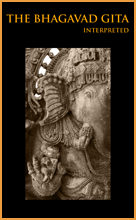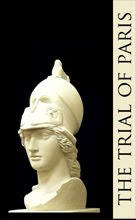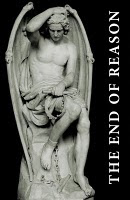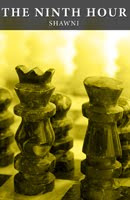O friend, I have composed books for you. My subjects come before you, to honor you, and to give advice in its place. But if you would be truly guided you would know that these are not the best of books.They are the least of them. If you read these works yet understand only these few words, you will put my books aside and take up others. Then you will have heeded my advice and these gifts will have served some good purpose.
Why do you draw from your quiver the crooked arrow?
Toss it away and take up the straight!
Be satisfied with the work of Rumi or Attar instead. In verse and prose they might bring you nearer your goal; they offer rest and comfort and solace to the weary.
To Rumi’s tales a wiser man refers,
To Attar’s skillful verses he defers.
Though envious of them, I cannot claim,
Their finer bow, their arrow, or their aim.
These two surpass me, but if they are not to your liking, turn instead toward the bounty of Abha, risen in your midst if you but looked. From Him you will find sure footing on this ruined road, and clear vision through a fog of doubts.
For my part the season has ended, and the fruits were long ago gathered up. Upon that field the sun has set; in that effort the work is done, the foundation built and I offer no further service. Recall the words of Sa‘di.
If it should not touch anyone’s ear of desire,
The messenger told his tale; it is enough.
After doubting the angel, Zechariah could not speak. For nine months his tongue was locked; silence from that sage was His sign, for what tongue can move without His leave?
If I were to put words on paper again, some reason must move me; some new thought or notion must enter my mind. Yet, except to mourn the errors of my previous work, nothing more can be said.
Whoever speaks when his speech is done,
Burns the very bread of his motives,
And bleaches the shirt of meaning to tatters.
But you are my friend, and how can I refuse you? I have renounced the writing of books, yet others request from me the writing of books. When friend and desire band together, no man can withstand their entreaties.
My pride rejoices, my arrogance now has fine excuse. Like Odysseus, I hear those lovely voices, yet I hurry to do their bidding and am not tied to any mast.
I swore I’d never take up pen again,
To save myself from vanity’s temptations.
I saw my nature could not bear the loss.
“For now I will renounce renunciations.”
Listen to these words if you must, yet remember that, whoever speaks, the voice is always mine alone. He sings to you like Solomon’s father, from the branch of a rose tree, that you might know the name he hides.
Now I stand at the door, not venturing in, like Ravana having cut off his ninth head, hesitating with his sword at the throat of the tenth.





